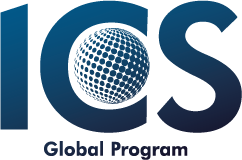SA 8000 - Social accountability
General
According to SAAS' (Social Accountability Accreditation Services) 'Notification', certificates of compliance to SA 8000:2014 become available starting May 1, 2015. As of April 30, 2016, all new SA 8000 accredited certificates shall be to SA 8000:2014. As of April 30, 2016, all existing SA 8000 accredited certificates shall be upgraded to SA 8000:2014 and any existing certificates issued to SA 8000:2008 shall not be valid.
SA 8000 standard was developed by Social Accountability International (SAI) – an international social accountability organization with headquarters in New York, USA.
SA 8000 standard is an international standard, designed to improve labor conditions in different countries of the world. This standard is based on the principles of International Labour Organization (ILO) conventions, Universal Declarations of Human Rights and on the Rights of the Child. The requirements focus on the provision of protection, respect, and safety of employees, and the elimination of cases of human right violation in the process of labor relations.
SA 8000 standard is applicable to the activity of any organization, which is concerned about its employees, company’s image and brand and wants to demonstrate the stakeholders its commitment to the principles of social accountability. Certification of compliance to SA 8000, Social Accountability standard, is particularly relevant for manufacturing companies, working with large transnational brands, and for companies, working or planning on entering an international market.
Confirmation of compliance with the requirements of SA 8000 is the availability of certificate, issued by a Certification Body, accredited by SAAS (Social Accountability Accreditation Services). SAAS is an organization, specifically founded by SAI to conduct Certification Bodies’ accreditation. SA 8000 contains requirements for the following elements of the organization’s social accountability system:
- Child labor,
- Forced labor,
- Occupational health and safety,
- Freedom of association and the right to conclude collective bargaining agreement,
- Discrimination,
- Disciplinary practices,
- Working hours,
- Remuneration,
Benefits of implementing and certification against SA 8000
demonstrate all stakeholders the Organization’s management commitment to the requirements of social accountability;
- demonstrate all stakeholders the Organization’s management commitment to the requirements of social accountability;
- ensure fulfillment of statutory requirements in respect of social responsibility;
- manage risks, arising in social sphere;
- improve labour conditions, increase employees’ motivation, moral climate within personnel;
- receive significant economic benefits from savings of cost for fee payment for social accountability-related law violation;
- improve image of the company;
- improve image of the brand;
- raise new investments as socially-oriented company;
- obtain free access to additional markets, the requirement for entering which is internationally-recognized social accountability system;
- improve company’s interrelations with the government, gain advantage in participation in governmental projects;
- integrate social accountability management with current management system

